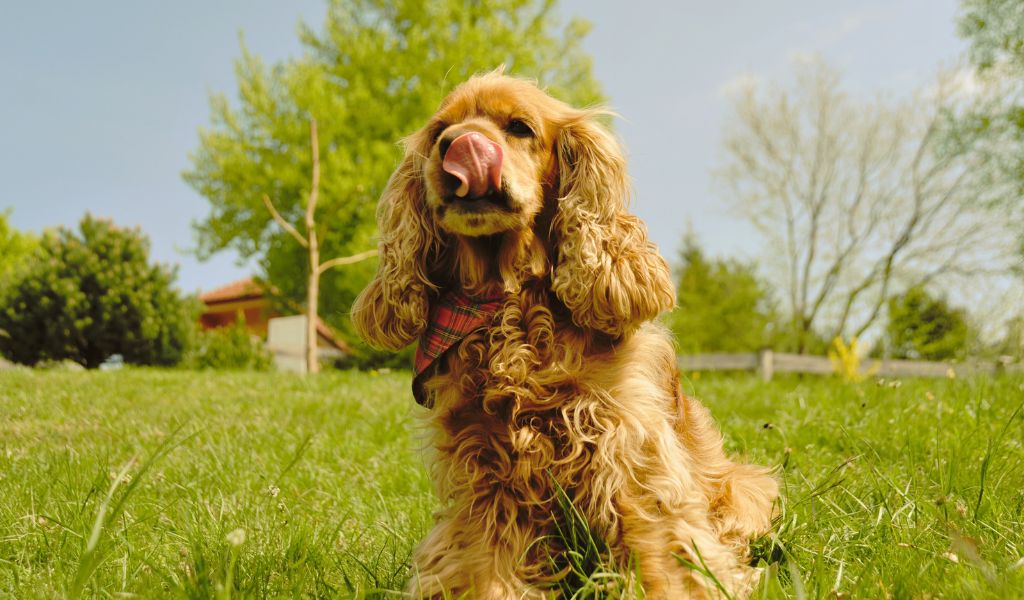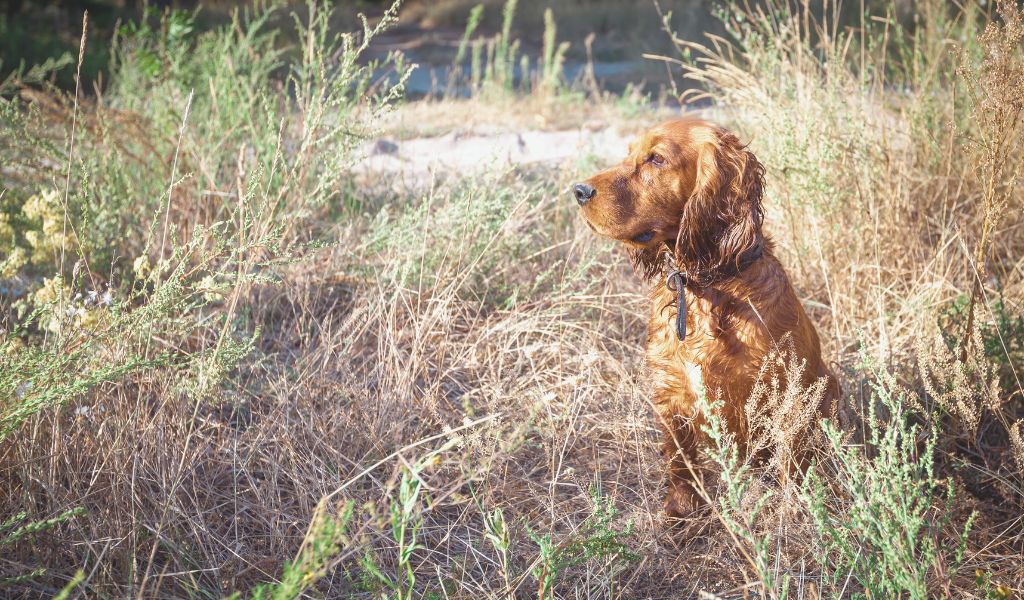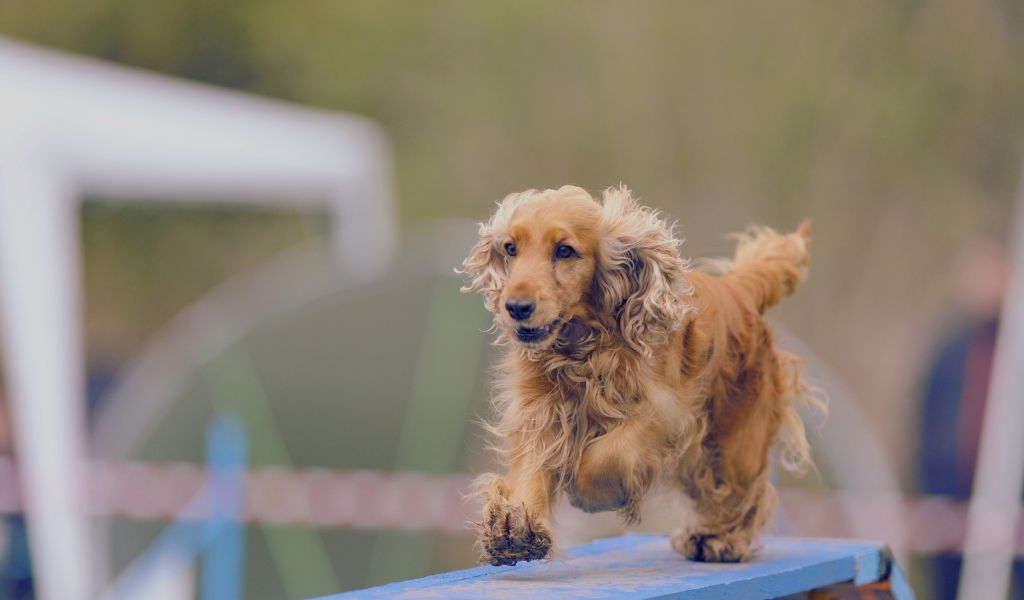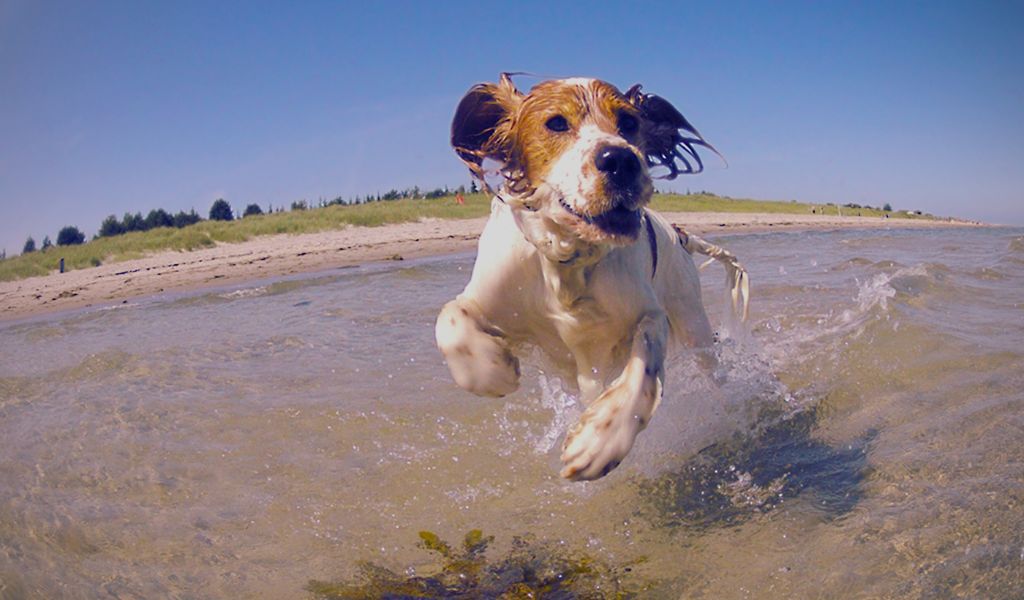Training a 1-year-old Cocker spaniel requires understanding their specific developmental needs and behavioural traits.
This comprehensive guide will delve into the intricacies of training your adolescent Cocker spaniel, providing detailed strategies, background information, and practical advice to assist owners in this crucial phase of their dog’s life.
Training a 1 year old Cocker spaniel requires a tailored approach, understanding their transition from puppyhood to adulthood. Our guide covers key training areas like consistency, advanced obedience, and behavioural management. It offers practical advice for common challenges, emphasizing positive reinforcement and patience. An essential resource, this guide equips owners with strategies for a well-behaved, happy Cocker spaniel, complete with a handy FAQ section for quick reference
Understanding Your 1-Year-Old Cocker Spaniel
Entering adolescence, Cocker spaniels experience significant developmental changes that influence their behaviour and learning capabilities.
Understanding these changes is crucial in effectively training and guiding them through this stage.
- Developmental Stage: At one year, your Cocker spaniel is transitioning from puppyhood to adulthood, which brings changes in behaviour, learning capacity, and energy levels.
- Personality Traits: They typically exhibit a mix of independence and affection, curiosity, and an eagerness to explore.
- Training Implications: Understanding these traits helps tailor training to be more effective. For example, use their curiosity to make learning fun and engaging.
The Importance of Consistency in Training
Consistency in training is vital for your Cocker spaniel to understand and follow rules and routines.
This section explains how consistent training methods and routines can benefit your dog’s learning process.
- Routine and Rules: Maintain consistent routines for feeding, walks, and toilet breaks. Consistency in commands and rules helps the dog understand expectations.
- Family Involvement: Ensure all family members follow the same training and behaviour guidelines to avoid confusing the dog.
- Training Schedule: Establish a regular training schedule. Consistency in timing helps reinforce learning.
Addressing Stubbornness and Selective Listening
Adolescent Cocker spaniels may exhibit stubbornness or selective hearing.
This section provides advice on how to manage these traits and maintain an effective training regimen.
- Positive Reinforcement: Always use positive reinforcement like treats, praise, or playtime to encourage good behaviour.
- Engagement Techniques: Keep training sessions short but engaging. Try incorporating games or new tricks to maintain interest.
- Patience is Key: Stubbornness can be a phase. Maintain patience and avoid showing frustration during training sessions.
Advanced Obedience Training: Building on the Basics
As your Cocker spaniel matures, it’s important to build upon the basic training they received as a puppy.
This section discusses advancing your dog’s training to include more complex commands and behaviours.
- New Commands: Introduce commands such as ‘heel‘, ‘leave it’, or ‘stay’ to enhance obedience training.
- Incremental Challenges: Gradually increase the complexity of tasks to keep your dog mentally stimulated.
- Reinforcement: Regularly practice basic commands to reinforce learning and ensure they are not forgotten.

Managing High Energy Levels and Distractions
High energy levels and increased distractibility are common in adolescent Cocker spaniels.
This section focuses on strategies to manage these aspects effectively during training.
- Adequate Exercise: Ensure your Cocker spaniel gets plenty of physical exercise. Activities like long walks, fetch, and swimming can help burn off excess energy.
- Mental Stimulation: Engage them in activities that stimulate their mind, like puzzle toys or hide-and-seek games.
- Controlled Exposure to Distractions: Gradually introduce distractions during training sessions to improve focus and obedience in different environments.
Socialisation and Behavioural Adjustments
Continued socialisation and behavioural adjustments are essential for your growing Cocker spaniel.
This section covers the importance of socialization and how to address emerging behavioural issues.
- Continued Socialisation: Regularly expose your dog to different people, animals, and environments to enhance their social skills.
- Behaviour Correction: Monitor for any unwanted behaviours such as jumping or excessive barking and correct them gently but firmly.
- Positive Experiences: Ensure each new encounter is positive, using treats and praise to associate new experiences with rewards.

Crate Training and Alone Time for Your Adolescent Dog
Crate training is an important aspect of raising a well-adjusted Cocker spaniel.
This section explains the benefits of crate training and how to implement it effectively for an adolescent dog.
- Crate as a Safe Space: Make the crate a comfortable and positive place, not a space for punishment.
- Gradual Introduction: Start with short periods in the crate and gradually increase the duration.
- Alone Time Training: Leave the room for short periods while your dog is in the crate, slowly increasing the time spent alone.
Dealing with Emerging Behavioural Issues
Adolescent Cocker Spaniels may start showing new behavioural issues.
This section discusses how to identify and address these emerging challenges.
- Early Detection: Be vigilant for signs of issues like resource guarding, anxiety, or aggression.
- Consistent Correction: Address unwanted behaviours consistently and calmly, using positive reinforcement.
- Professional Help: If behavioural issues persist, consider consulting a professional dog trainer.

Reinforcing Toilet Training and Indoor Behaviour
Maintaining toilet training and proper indoor behaviour is crucial during your dog’s adolescent stage.
This section offers strategies to reinforce these important behaviours.
- Consistent Toilet Breaks: Maintain a regular schedule for toilet breaks, especially after meals and playtime.
- Accident Management: Clean up accidents thoroughly and avoid punishment. Instead, reinforce positive toilet habits.
- Indoor Manners: Encourage good indoor behaviour, such as staying off furniture or not begging at the table, with consistent reinforcement and correction.
When to Seek Professional Training Assistance
Sometimes, the expertise of a professional dog trainer is needed.
This section outlines when and why you might consider seeking professional assistance.
- Challenging Behaviour: If you’re struggling with specific behavioural issues or training challenges, professional help can offer targeted solutions.
- Training Techniques: A professional trainer can introduce new techniques and provide a fresh perspective on training.
- Support and Guidance: Sometimes, having support and guidance from a professional can boost your confidence and effectiveness as a trainer.
FAQs
How long should training sessions be for a 1-year-old Cocker spaniel?
Keep training sessions short, about 10-15 minutes, to maintain your dog’s attention and prevent fatigue.
Can I train my Cocker spaniel to be alone for long periods?
Yes, but it should be a gradual process. Start with short intervals and gradually increase the time. Ensure they have toys and comfortable bedding in their crate or designated area.
What should I do if my Cocker spaniel starts showing aggression?
Address aggression immediately. Observe the triggers and avoid them. Seek professional help if the aggression persists.
How do I deal with my Cocker spaniel’s high energy levels?
Provide plenty of physical exercises, such as long walks, playtime in the park, and interactive games. Mental stimulation is equally important.
Is it too late to start crate training my 1-year-old Cocker spaniel?
No, it’s not too late. Introduce the crate gradually and positively to make it a comfortable space for your dog.
How can I improve my Cocker spaniel’s focus during training sessions?
Reduce distractions in the training environment, use high-value treats as rewards, and keep the training sessions engaging and varied to hold their interest.
By understanding the specific needs and behaviours of your 1-year-old Cocker spaniel, and applying consistent, positive training methods, you can successfully guide them through this crucial stage of their development.
Remember, patience and consistency are key in raising a well-behaved and happy companion.




